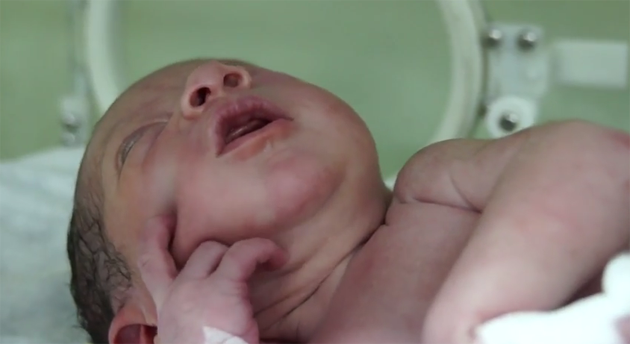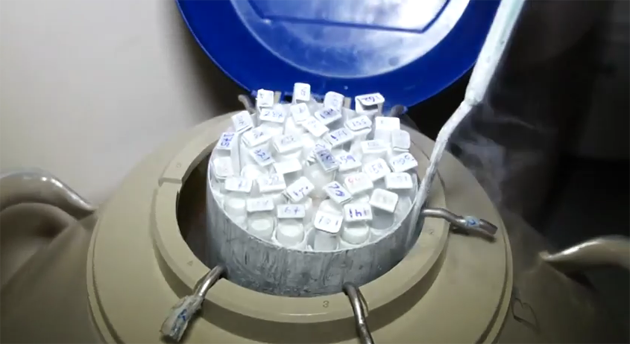
When did you first learn of this? Well I’ve been to Palestine a number of times and I keep in touch with what’s going on in the Arab world just out of personal interest. It’s my heritage. I saw a really short news piece about these women who were allegedly doing this and I thought “this is amazing” because when you hear about Israel or Palestine it’s generally the same rhetoric and you kind of get desensitised, especially in Australia and the rest of the western world, to the plight of the people over there and it’s a really different perspective on that conflict. I guess it’s a really political action but one which is being lived out through very personal experiences and I think that’s really lacking in terms of the types of stories that come out of that part of the world. You never hear about the humanity. Everything’s politicised. So that story really stuck out. I basically called some contacts I had over there and said, “Look, I know this is potentially happening, I really want to keep tabs on it, can you keep your ear to the ground?” I kept contact with my contacts quite regularly, maybe once a week, then they lead me to other woman that lead me to the doctor. Once I had proof and hard evidence that it was actually sperm smuggled out of prisons I started to shoot out emails and make phone calls three or four times a week. I eventually got a couple of them to talk to me on the phone and we did Skype chats. There was a lot of preparation involved. One, so I knew they would talk. And two, I needed to know the details of the story because there obviously wasn’t a lot out there.
What were your expectations when you were on the plane and how did that stack up to what you actually learned and experienced? It was more overwhelming than I thought it would be. Mainly because I arrived on the day of the birth of the baby. The primary talent or the main subject in the story, Lydia, she was actually having the baby and the whole trip was timed around trying to get there in time for the birth. The gods were with me and I got there on the day it was born. It was born the night before but early in the morning, if that makes sense. So when I arrived it was all these really heightened emotions at the hospital as you can imagine. This woman had just had a baby. The first time it was proven that the baby came from sperm smuggled out of a maximum security Israeli prison. For her, it felt like a massive achievement. For her, it was a big “fuck you” to the Israeli military and the Israeli authorities. From her perspective, this act of giving birth undermined the entire Israeli prison system. The idea was that no matter what, you can occupy our lands, you can imprison our husbands, whatever, but you cannot stop us from reproducing and continuing the Palestinian way of life. When I got there it was massively overwhelming. All of that sentiment was coming from her. From there, all the women I spoke to, they’re not all featured in the final story, they were all extraordinary humans. Their daily existence is pretty bad but they still had such high positive energy. They’re really resourceful. They find ways to make their lives as good as it possibly can be considering the circumstances and that was really surprising.
How did you gain the trust of the subjects, especially considering the legal repercussions that could arise? As you say, it’s really hard to get people to have faith that you’ll do them justice and create the trust required to tell their story honestly. And I think in this case, you have to really understand the reasons why people are compelled to do these kinds of things. I think because I followed this story so closely for many months and I did all that groundwork before I left. I built rapport with them on the phone and on Skype. I also speak the language. I speak Arabic which helped a lot. That barrier is immediately removed when you communicate in a familiar language. It strips back like five layers immediately. That helped a lot. Then I just explained my reasons for wanting to do the story. I said that I thought what they were doing was pretty amazing and it’s a shame that a lot of people outside your world don’t know about it and I thought it would be great if the world does hear about it. Particularly because they live in a place that feeds on the same kinds of stories all of the time. I guess there’s no solid answer to that question. I guess I had good intentions, I was very honest with them and I did the research. The fact that I spoke the language and shared their heritage, I think, also helped build trust.

“A gift from god.”
I guess the main question I have and I’m sure the piece answers this but how do they actually extricate the sperm in the first place? You’re going to have to watch the story. There isn’t one answer. There are several ways and as I said earlier, they’re amazingly resourceful. It’ll blow your mind. These women are challenging a stringent prison system which is really hardcore. So when you see the piece you realise how simple it actually is in terms of their operation and their network and how organised they are. It’s actually quite simple. It’s funny in a way. You look at this massive system with layers of intense security and you look at their ideas for how they were going to get these samples out, it’s a remarkable difference in terms of complexity. Their approach and ideas were quite simple and I think that’s why they worked. That kind of fearlessness they have living the way they do and getting so used to their treatment under occupation gives them an almost cavalier attitude. There are several ways and those ways are detailed in the piece. I was shocked myself to be honest. I wasn’t sure how much they would divulge but after a few days the trust got stronger and I was astounded with the amount of detail they were willing to give. I guess that’s why it’s become such a big story because no one’s really been able to crack that.
Do they see it more as a political action undermining the Israeli authorities or as a more humanistic gesture in honour of their husbands? I think for the women there’s an underlying political message. But more than anything, they’re in their late 20s and 30s, they want to have families but they can’t because their husbands are in some cases serving multiple life sentences. There’s no chance for them to have children. Under the laws of Islam they wouldn’t have another relationship even though they are married to a man in prison. The crux of it for them was they really wanted to have a family. One of the women said something which was really poignant and I think it’ll stay with me forever. She said that despite the fact that they’re imprisoned by the occupied forces and though the husbands might feel like their lives are over, the wives want to do this to give them a sense of hope and a reason to live. It’s definitely political too, though. You almost can’t do anything in that part of the world without it being political but at the same time it’s really human. The doctor who was helping the women out with the IVF procedures was saying it was a humanitarian act for him. It wasn’t political. It was to create life and families.

What was the most surprising thing that you learned? That it’s really fucking hard to get through checkpoints.
Were there any sketchy moments? There were definitely sketchy moments. Nothing crazy but moments where I thought they might destroy my camera or I might go back without a story. I faced those threats more than once but was lucky enough to escape those situations relatively unscathed, with the camera and the material. It’s really hardcore when you go to a place like that. When you go to Palestine or when you go to The West Bank it’s just really confronting. That day in particular the soldiers were really aggressive. It was the day before Ramadan was ending so a lot of families were going to Jerusalem to pray. The checkpoints were crazy. You can imagine hundreds and hundreds of people – young kids, mothers – trying to get through to the prayers on time. It was chaos. It did get out of hand when I was there. I was pushed and manhandled. That didn’t really bother me I was more shocked at the treatment that a lot of the women and children were facing. It was really disturbing. In the past I thought to myself that it would be an amazing place to live and base yourself out of but I kind of questioned that while I was there. It would be really hard to endure that environment day to day. Someone told me before I left that Palestinians have this philosophy where if you have a list of ten things to do everyday you automatically know before you leave the house that you’ll only do five of them. You literally just can’t get from A to B. One day it could take 40 minutes the next it could take four hours. It’s a horrible situation but at the same time there’s a lightness and frivolity and a positive spirit that is present. They make jokes. They almost turn it into entertainment because they can’t really deal with it in any other way and they can’t do anything to change it. They just embrace it. It’s really bizarre.
Was the fact that this report may hinder the success of future operations a consideration? That was a real ethical dilemma doing this story. On the one hand I wanted to tell this amazing story and what these women were doing but on the other hand there was the possibility that drawing attention to them would compromise and limit others yet to do it. It was a really hard decision. I had to talk it through with my producers and people I really respect and trust. I think we made the right decision. Inevitably, the Israeli authorities will always find ways to crack down because they’re much bigger and stronger than all of these women put together. My hope is that if there is a groundswell of Palestinians considering doing this for themselves that the numbers will be so great it will create a protective barrier so that the Israeli authorities can’t do anything crazy, either to the prisoners or their wives because so many people know about it and it will be in the public eye. There was a real process involved in deciding whether or not to divulge the process because it hasn’t been done before.
So there are elements of this story you have withheld? Yes and no. I’d say yes. It’s pretty detailed in terms of the process and how it all works. But at the same time I’ve tried to be as sensitive as possible about how we tell the story so it doesn’t completely shut it down. But most importantly, to protect the women, their identities, and absolutely decrease the risk of anything bad happening to them. That was a massive consideration. It was a big decision but I think we made the right one and I hope that when people see the story they agree.
UPDATE: Read the full story here.
The Feed airs tonight on SBS2 at 7:30pm



